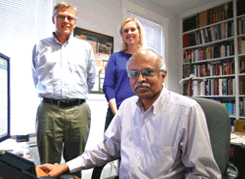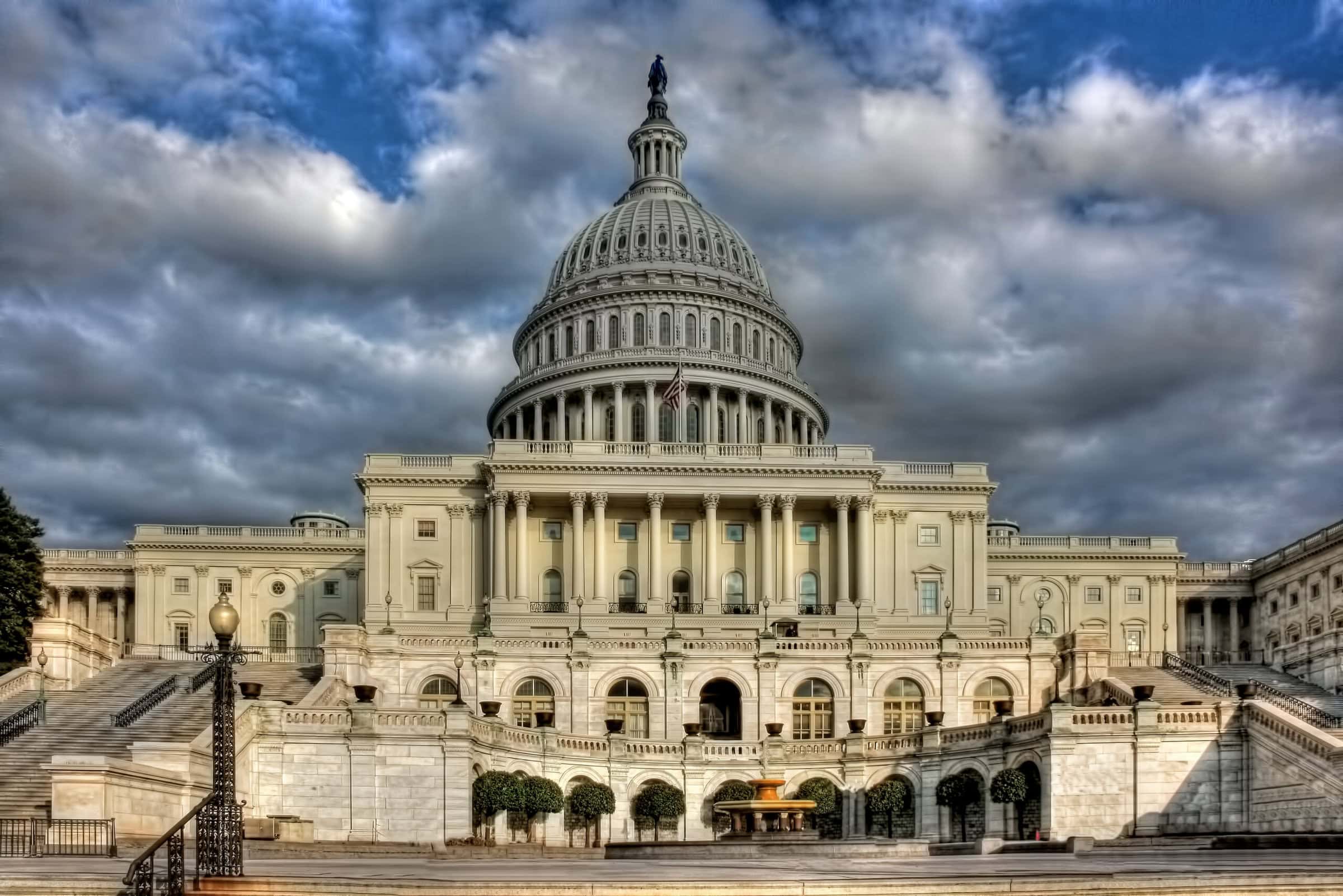To the 14 highly motivated scholars who gave up a part of their summer vacation to gather from around the world in Washington, D.C., for the third international seminar on decolonization, it was, in the words of one, “a great summer.” The seminar, one in a series organized by the National History Center in collaboration with the American Historical Association and the John W. Kluge Center of the Library of Congress and funded by a grant from the Andrew W. Mellon Foundation, was held July 6 through August 2, 2008, in the Jefferson Building of the Library of Congress. Like the first two seminars, the third also focused on various aspects of the processes and modalities through which former colonies in Africa, Asia, and the Caribbean severed the ties that bound them to imperial powers. The seminar participants, from the United States as well from other countries, dealt with topics ranging from the role played by assassinations in empires to considerations of Zionism in the making of policies toward the Middle East, and from studying the imagined communities of a West Indian federation to a comparative analysis of imperial violence in India and Ireland.
These seminars on decolonization are intended to facilitate the development and refinement of a burgeoning new field of historical inquiry by bringing together scholars who are engaging with the many facets of a historical process, one that has complex and profound implications for understanding the modern world. The seminar provided an opportunity to the participants not only to conduct research in the various libraries and archives in the Washington, D.C., metropolitan area but also to exchange information and share ideas with each other, and with the seminar faculty, and to hone their writing skills, another important aim of the series.
The seminar was led by Wm. Roger Louis, Kerr Professor and director of British studies at the University of Texas at Austin, and a former president of the AHA; Dane Kennedy (George Washington Univ.); Philippa Levine (Univ. of Southern California); Jason Parker (Texas A&M Univ.); and (AHA).
During the four-week seminar the participants had a chance to have informal discussions with the faculty and also had the opportunity to listen to two public lectures. One by Dane Kennedy, entitled “Decolonization and Disorder,” explored the relationship between the waning of empires and the violence that often accompanied. The second lecture, by Wm. Roger Louis, entitled “The Moral Conscience of the World: The United Nations and Palestine in 1947” examined the role of the United Nations in the making of the modern Middle East. The two lectures were webcast by the Library of Congress and the recordings can be seen on the library’s web site or that of the National History Center.
The seminar ended with presentations made by the participants on the work they had done—or further enhanced—during the seminar’s intellectually intense four weeks. But it was not all work either (or almost not). Despite their intense and dedicated focus, the participants found time for socializing, which also proved useful at times to provide new insights into ways of studying decolonization as one of them remarked (see a few additional comments below).
A Few Comments on the Decolonization Seminar
My participation in this year’s Decolonization Seminar truly stands as one of the highlights of my academic career. During an intense month in Washington D.C., I was able to conduct extensive research in various archival collections and libraries, all the while relying upon the expert counsel of our dedicated seminar leaders. I was also able to work with an amazing group of highly talented scholars, all in various stages of their academic careers and working on disparate topics and regions. As I work to complete my first book manuscript, I can already see the effects of this fruitful collaboration, and I am confident that the relationships forged in the summer of 2008 will continue to influence my research, writing, and teaching.
—Jennifer Foray
The chance to participate in discussions as well as doing my own independent research allowed me to think about my topic in new ways. In fact, I had an intellectual breakthrough during the seminar that helped me understand how to merge the regional aspects of my story with the global ones. Equally important for me, as a foreign scholar, was the opportunity to interact with scholars from prestigious universities in the United States and Britain. I can certainly say that the seminar was a formative experience.
—Guy Laron
To me, the opportunity to participate in this seminar was a unique experience. Besides the obvious chance for establishing networks with historians of different countries, the attendance of the seminar brought to my attention the need for a reflection on the kind of historic analysis that is being made internationally in comparison to the one made in Portugal. This will be very important to my PhD dissertation and to my future work as a Portuguese historian. [The seminar] was probably the most important experience I had in my still short career.
—Daniel Marcos
The seminar was a remarkably well-constructed intellectual experience that had all of the things that historians need, beginning with the sources. We participants engaged with the sources and experienced the “euphoria,” to use Dane Kennedy’s word, of archival research. The discussions about sources kept us thinking of bigger pictures and connections. Most important, the seminar provided intellectual access to each other, no matter where we were in our careers. Over lunch at the National Archives in College Park, a fellow participant urged me to think about transnational sources like the Red Cross or UN bodies, because these organizations, which often have goals different from national actors, provide a different kind of access into issues. A conversation in a cafe with another colleague about my frustration with my historical informants’ lack of reflection led me to realize that the deflective nature of the sources was part of the story. The experience left me with visions of future seminars on other topics—perhaps military occupations—with the same creative mixture of archives, graduate students, and more experienced historians.*
—Lori Watt
*We regret that in the print version of this article, some words were inadvertently deleted.
Participants in the Seminar
- Carolyn Biltoft (PhD Candidate 2008, Princeton University), “Assassination: Life and Death at the End of Empire”
- Jennifer Dueck (DPhil 2005, Oxford), Lecturer, Corpus Christi, Oxford, “Inter-confessional Relations in Lebanon under the French Mandate”*
- Eric D. Duke (PhD 2007 Michigan State University), Assistant Professor, University of South Florida, “Out of One … Many Nations: Imagining the West Indies Federation”
- Jennifer Foray (PhD 2007 Columbia University), Assistant Professor, Purdue University, “From Dominion Status to Decolonization: The Commonwealth Idea in the Netherlands, 1920–1954”
- Leigh Gardner (DPhil Candidate, 2009, Jesus College, Oxford), “Public Finance and Decolonization in British Africa: Continuity and Change in Kenya and Zambia, 1945–75”
- Emma Hunter (PhD 2007, University of Cambridge), Lecturer, University of Cambridge, “Political Languages in Decolonization Era Tanzania: Revisiting the Centre-Local Dynamics”
- Shereen Ilahi (PhD Candidate 2008, University of Texas at Austin), “The Amritsar Massacre of 1919 compared to 1920 Bloody Sunday in Ireland”
- Fabian Klose (PhD 2007, University of Munich), Lecturer, University of Munich, “The Transfer of Strategic Knowledge in the Age of the Wars of Decolonization”
- Guy Laron (PhD Candidate 2008, Hebrew University), “Decolonization age and the Eisenhower Administration, 1952–1956”
- Daniel da Silva Costa Marcos (PhD candidate 2008, Portuguese Institute for International Relations-New University of Lisbon), “The USA, Portugal, and the Colonial Issue, 1945–1961”
- Laura Robson (PhD candidate 2009, Yale University), “Decolonization and Christian Arab Political Identity in British Mandate Palestine, 1917–1948”
- Maria Romo-Navarrete (PhD, 2006, Sorbonne) Associate Researcher, Research Center of History at the University of Sorbonne, “French Indigenous Political Elites through the Last Years of the French Empire”
- Lori Watt (PhD 2002, Columbia University), Assistant Professor, Department of History, Program in International & Area Studies, Washington University in St. Louis, “When Empire Comes Home: Repatriation in Postwar Japan”
- Stefanie Wichhart (PhD 2007, University of Texas at Austin), Assistant Professor, Niagara University, “A ‘well-run’ Iraq or a ‘happy’ Iraq: the Second British Occupation, 1941–1946”


